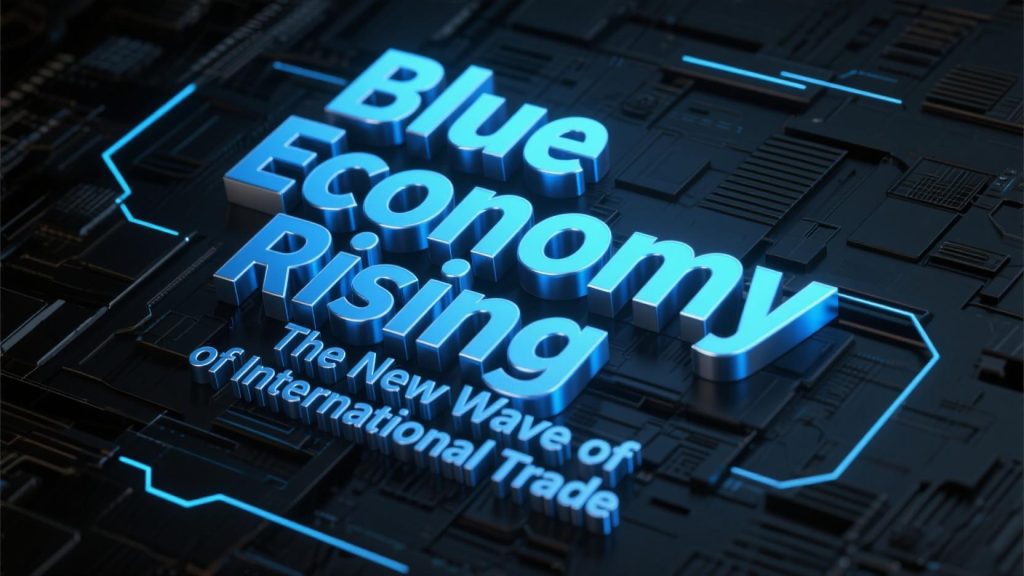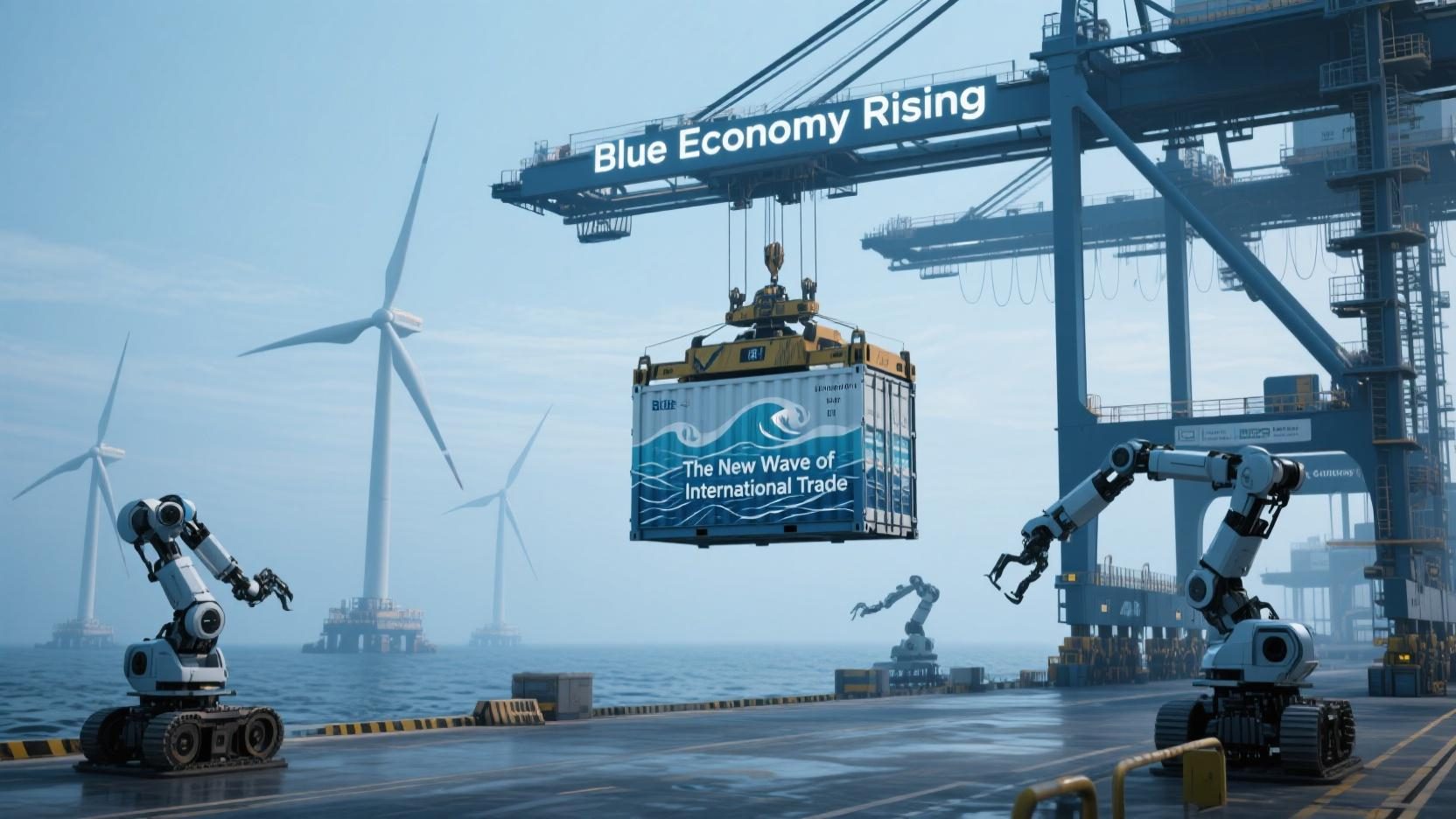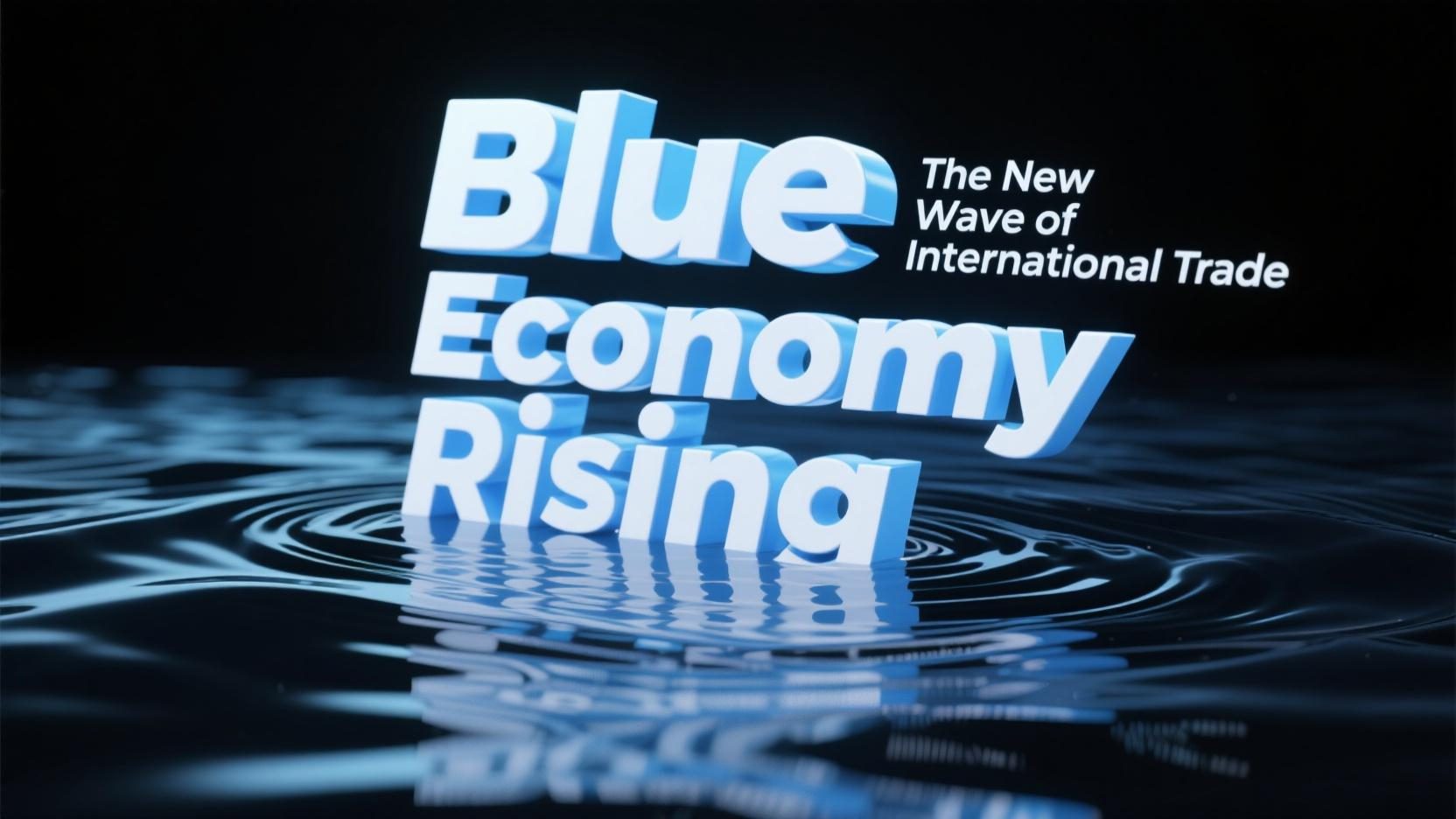In the era of climate crisis and dwindling terrestrial resources, the blue economy — a sustainable approach to oceans and waterways — is reshaping global trade. As nations and industries turn to the seas for resources, transportation, and energy, oceans have emerged as the next frontier of international commerce.
The New Marine Trade Routes
Traditionally, global commerce has relied on fixed shipping lanes. Today, advances in autonomous vessels, deep-sea mining, and offshore renewable energy are ushering in a new era:
-
🌊 Autonomous Electric Ships: AI‑driven vessels navigate global waters with precision, reducing fuel costs by 40–60% and emissions by 80–90% compared with traditional tankers.
-
⚡️ Oceanic Energy Hubs: Floating solar farms and deep‑sea wind turbines are converting ocean spaces into global energy corridors, making nations like Portugal, Brazil, and New Zealand pivotal exporters of clean power.
-
🐚 Seabed Resources: The deep ocean floor is rich in rare earth minerals essential for electronics and renewable technologies. The global deep‑sea mining market is projected to surpass $15 billion by 2030.
The New Trade Framework
The shift toward the blue economy has redefined traditional roles:
✅ Port Cities as Innovation Hubs: Cities like Singapore, Rotterdam, and Shenzhen evolve from logistics hubs to multi‑purpose centers, combining commerce, clean energy, and maritime R&D.
✅ International Regulations Evolve: New treaties like the UN High Seas Biodiversity Agreement govern deep‑sea mining, making ecological protection a precondition for extracting resources.
✅ Blue Trade FinTech: Smart oceanic platforms utilize satellite monitoring, AI forecasting, and sensor‑enabled shipping to optimize global supply chains. This approach reduces waste and delays, making ocean commerce more resilient and predictable.
Challenges and Opportunities
While the blue economy holds promise, it also faces critical dilemmas:
-
⚠️ Environmental Oversight: Balancing economic interests with ocean conservation is vital. New global institutions must prevent over‑exploitation and preserve marine biodiversity.
-
💳 Geopolitical Frictions: Competition for deep‑sea mining rights could intensify tensions between nations, especially in contested areas like the Pacific and the Arctic.
-
🌱 Equity and Inclusion: Small island nations must benefit from the blue revolution, gaining access to deep‑sea resources and energy revenues.
The Final Frontier of Global Trade
In a world where land and air trade have matured, the oceans are now the site of global economic reinvention. The blue economy is not just about extracting value from the seas — it’s about reshaping commerce itself. The nations and businesses that master this shift will define global trade for the next century.









